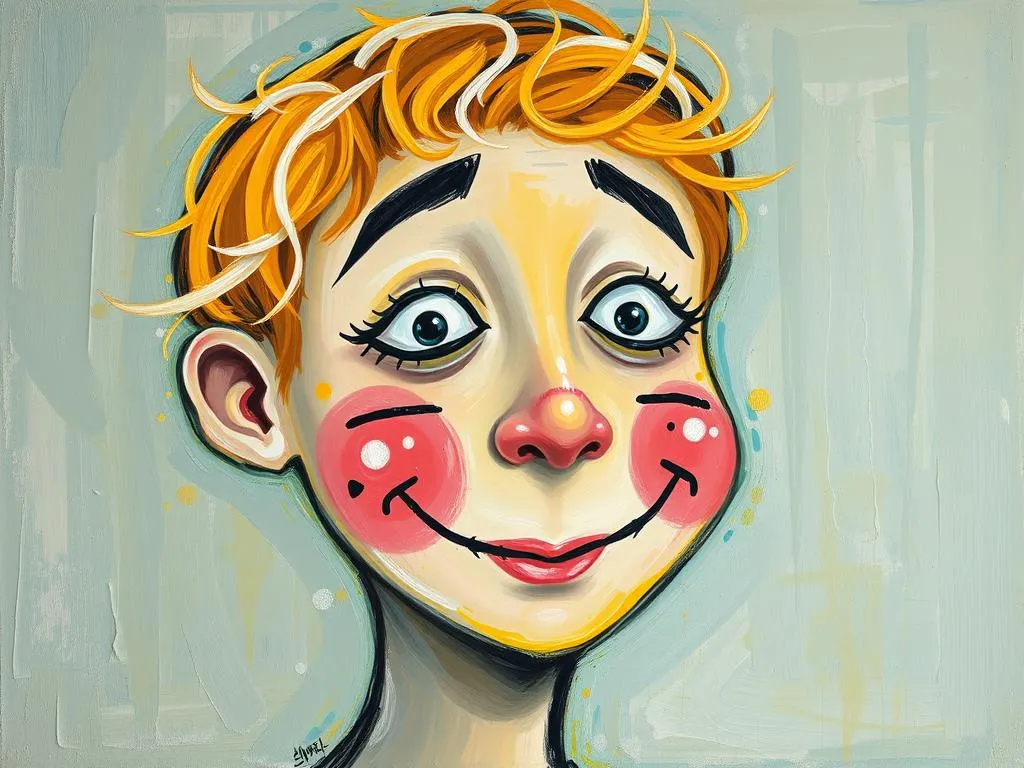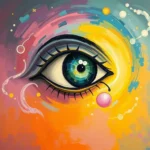
Dreams have long fascinated humanity, serving as a window into our subconscious minds. Among the myriad of dream symbols, the image of black markings on the face stands out for its rich symbolism and emotional depth. This particular dream can evoke feelings of confusion, anxiety, or even curiosity, prompting individuals to seek meaning behind these unsettling images. Understanding such dreams is not just a pursuit of curiosity; it can be a pathway to self-discovery and emotional healing. This article delves into the symbolism and meaning of dreaming about black markings on the face, explores various scenarios and interpretations, and provides insights for personal reflection.
Symbolism and Meaning
The presence of black markings on the face in dreams can carry multiple meanings, depending on the context and the emotions felt during the dream. The face itself is a powerful symbol, representing one’s identity, social persona, and how we present ourselves to the world. When black markings appear, they often signify feelings of shame, guilt, or a desire to hide one’s true self. It may indicate that something is obscuring your identity, leading to feelings of vulnerability and exposure.
Black is a color often associated with the unknown, the hidden, and even darkness. In this context, the markings can symbolize repressed emotions or unresolved issues that are coming to the surface. They may represent fears that are too daunting to confront directly, hence manifesting as markings on the face—a part of us that is typically visible and exposed. Alternatively, black markings could also symbolize transformation. Just as artists use charcoal to create depth and shadow, these markings could signify a process of change, where one is coming to terms with aspects of themselves that have previously been hidden.
In various cultures, faces are seen as reflections of the soul. Therefore, dreaming of black markings might indicate a crisis of identity or a struggle with self-acceptance. These markings may serve as a reminder to explore the shadow aspects of oneself—those parts that are often ignored or rejected. Engaging with this shadow self can lead to personal growth and a more authentic existence.
Key Scenarios and Variations
The interpretation of black markings on the face can vary significantly based on the specific scenarios in which they appear. For instance, consider a dream where the dreamer looks in a mirror and sees black markings spread across their face. This scenario may suggest a moment of self-realization or confrontation with one’s true feelings. The mirror acts as a reflective surface, emphasizing the importance of self-awareness. In this case, the dream may be urging the individual to acknowledge hidden fears or insecurities that need to be addressed.
Another variation could involve the dreamer witnessing someone else with black markings on their face. This scenario can shift the focus from self-exploration to external relationships. It might indicate feelings of judgment or criticism towards that individual, or perhaps a projection of one’s insecurities onto them. Understanding this dream could prompt the dreamer to reflect on their interactions and feelings about others, leading to a deeper understanding of their own emotional landscape.
There may also be dreams where the black markings are actively changing or morphing. In this case, the markings might symbolize ongoing transformation or evolution in the dreamer’s life. The dynamic nature of the markings could reflect the continuous changes in identity or personal circumstances, suggesting that the dreamer is in a period of significant transition or growth. This could be a powerful invitation to embrace change and allow oneself to evolve.
Lastly, consider a scenario where the black markings are accompanied by feelings of fear or panic. This combination may suggest that the dreamer is grappling with overwhelming emotions or traumatic experiences that they have yet to process. The markings, in this case, could symbolize a burden that the dreamer feels unable to shed. This dream serves as an important signal to seek support, whether through therapy, self-reflection, or open conversations with trusted friends or family.
Real-Life Connections and Takeaways
For those who experience dreams featuring black markings on the face, it is crucial to connect these dream images to real-life situations. The feelings evoked during the dream can often mirror waking life challenges, emotions, or unresolved issues. Reflecting on the context of the dream can provide valuable insights into your emotional state and personal circumstances.
One practical approach to understanding this dream is through journaling. Upon waking, take a moment to write down the details of the dream, including your feelings, thoughts, and any significant symbols that stood out. As you write, consider the following questions: What was happening in your life when you had this dream? Are there aspects of your identity that you feel are hidden or unacknowledged? What fears or anxieties might the black markings represent?
In addition to journaling, engaging in mindfulness practices can be beneficial. Meditation or quiet reflection can help you connect with your inner self and explore the emotions that arise in relation to the dream. As you sit in silence, allow yourself to visualize the black markings and any feelings associated with them. What do they represent to you? Are there feelings of shame, fear, or perhaps a desire for transformation? Acknowledging these feelings can be the first step toward healing.
Moreover, consider discussing the dream with someone you trust. Sharing dreams can often lead to new perspectives and insights. A friend or therapist can offer guidance and help you navigate through the emotions and thoughts surrounding the dream. This conversation can also encourage you to confront any issues in your waking life that may be reflected in the dream.
Lastly, it is essential to remember that dreams are deeply personal. While this article offers interpretations and insights, your own understanding of the dream’s meaning is paramount. Take the time to explore your feelings and reflections, and allow yourself to sit with the discomfort that may arise. Embracing the unknown aspects of yourself can ultimately lead to growth, self-acceptance, and a more profound understanding of your identity.
In conclusion, dreaming of black markings on the face serves as a complex symbol that invites introspection and exploration. These dreams may signify hidden aspects of oneself, feelings of vulnerability, or a call to embrace transformation. By reflecting on the scenarios and emotions surrounding these dreams, individuals can uncover valuable insights into their waking lives. So, the next time you find yourself dreaming of black markings, take a moment to pause, reflect, and explore the deeper meanings that lie within. Your subconscious may be trying to guide you toward a greater understanding of yourself.







